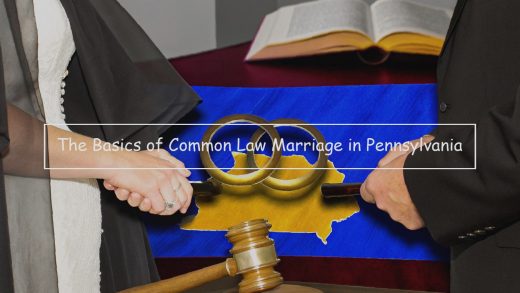
Band Partnership Agreements 101
A band partnership agreement is a legal document that outlines the business details of the working relationship between the members of a musical group. It establishes each band member’s ownership interests, rights and responsibilities with respect to the operation of the band as a business. In this blog, we will cover the core components of a band partnership agreement and the importance of having an attorney draft one to protect your interests.
Behind the music and the glamour of being a musician lies a need to earn a living. For this reason, it is important to think about your relationship with other band members as a business. In many cases, band members are co-owners of a business and in order to prevent disagreements regarding its operation and control, it is important to have a written partnership agreement. Furthermore, this partnership agreement may help to attract new band members and to ensure that key musicians remain with the band, even if the founder of the band leaves or loses interest in its future.
Contrary to a common misconception that an oral agreement is all that is necessary to establish a business between co-owners, they may not be enforceable . Even if there is a sufficient amount of evidence to prove the existence of such an agreement, damages may be difficult to determine, and the amount of damages a court awards may bear no relation to the value of the owners’ investment in the business. In contrast, a business partnership or operating agreement executed by owners who are represented by legal counsel can be easily enforced because the parties understood their rights and obligations prior to execution. In addition, such contracts specify the method for determining buyouts, allocations of profits and losses, and the rights to receive compensation.
Many aspects of operating a band are controlled by statute, such as the right to participate in management and control, share partnership profits, and receive distributions. Therefore, band members need to understand what is automatically provided by the law as well as the options available to them for modifying these statutory provisions. To this end, legal counsel plays an important role in ensuring that the agreement sufficiently covers the band members’ intentions.
Important Provisions in a Band Partnership Agreement
The best bands are usually formed by people who share the same musical vision, the same goals, and the same general philosophy about how to succeed in the music business. But the harsh reality is that indie bands tend to succeed, fail, split up and reshuffle in the same way that corporate entities do. That’s not to say that every band should hire an attorney to draw up a complex operating agreement and buy a million-dollar insurance policy, but there are some basic elements that every successful partnership should at least define.
The financial arrangements The general rule among successful bands is that any money generated by the band gets plowed back into the band. And although it may seem mundane to a new band, defining a financial structure will allow the band to maintain a professional operation. The partnership agreement should define how money will be generated — be it from merchandise sales, ticket sales, bar revenue or record sales — and how profits will be distributed among the partners (if the money isn’t going back into the band). The homemade t-shirts you sell after every gig probably don’t need to be mentioned, but a proper business-like budgeting structure needs to be set up. Another key element of the financial arrangements is how expenses will be divided up. One member of the band probably won’t mind handling the books and spending countless hours paying for gas, hotels, beer and food out of his own pocket, while one or two others would rather leave it to him than go through the hassle. But it may not be fair for one member to take financial responsibility for the whole band for the length of its existence. Having a solid financial arrangement from the start will not only equalize the burden on the members of the team, but it should make it easier to resolve conflicts over money before they happen.
The roles each partner will fill Not every band member should be involved in all aspects of the band. All members can be writers, producers and musicians, but what if one partner is a much better bassist than anyone else? What if two other members of the team are painfully shy? What if one member wants to be the lead singer, while another wants to focus on the technical aspects of the band? Setting up defined roles will not only allow each member the freedom to work independently if time is of the essence, but it will also prevent unnecessary arguments. In addition, every partnership (business or personal) should contain a buy-sell agreement that states how a member can leave the company (or band), when a member can leave the company (or band), how a member can join the company (or band) and when a member can join the company (or band).
Typical Provisions in Band Agreements
Decision Making: Most band partnership agreements set forth how decisions will be made in the band. Will decisions be made by consensus, majority vote, supermajority or some other method? This is one of the most critical parts of a partnership agreement and can cause lots of tension if it is not clearly articulated.
Profits and Losses: How profits and losses for a band shall be divided can be a point of great contention. Will all profits be shared equally? Will they be divided based on how much work each person does? Will parts of a deal like royalties or advances be split a different way? Every possible scenario should be considered and well defined.
Management and Control: An important part of any business agreement, management and control describes who will be in charge and what their respective duties will be. Will certain people have veto power? For example: if one of the members is responsible for licensing the music, they may have veto power over any use of the music in television or films. This can be a very important clause that can drastically impact a band’s future.
Intellectual Property Rights: For a lot of bands, their intellectual property is their only asset and often the only potential source of income. For that reason, it is critical that a band’s partnership agreement address how the group will allocate intellectual property. Will it be a work-for-hire? Will each member maintain individual rights or will the group own the rights as a whole? Will a member/artist be required to give up their individual name and likeness rights for the music? If royalties will be split, how will they be divided among the members? As discussed further in our next section, these issues are often the most contentious in these types of disputes.
Formulating Your Band Agreement
For many bands, the negotiation of these issues occurs less formally, in a piecemeal fashion, as the relationship develops. While common sense may result in equitable treatment between band members, the lack of formality can lead to disputes down the road. For example, who owns the band name? Who handles marketing and publicity? What happens if a member quits or is kicked out? These questions can be difficult to resolve and can cost a band time, money and even friendships.
So, how do you ensure that the band is meeting its potential? Make the process formal now, while the relationship is good. Sitting down with all band members and discussing issues that are important to the group is essential for maintaining complimentary relationships. At this point, each member will likely have a different view of how things should be handled, but if an agreement is reached, it enables the members to focus on building a great band, rather than focusing on how each of them should be compensated and involved. And, should a dispute arise, the terms of the agreement will dictate how any major decisions will be made. So what needs to be discussed? While each band is different, here are some key issues you should consider: Once you have decided what issues are important to your band, determine how the band will reach decisions. Will meetings be held formally and require a vote on every issue? Will each member decide an issue, or will one member take the lead? How will the band handle new members?
As with many business arrangements, it is also important to have an agreement that can be signed by all members. This document will set forth how a band and its members will handle various issues, thus providing guidance for future business decisions.
The Legal Focus
Whether you’re the seasoned rocker, the background musician, the songwriter, the manager—or even the roadie—technically, you’re the face of an emerging business partnership. Sure, your band communicates like a family unit, but that doesn’t mean that familial bonds are going to suffice if your situation deteriorates. It’s in everyone’s best interest to sit down, crank out a signed legal partnership contract, and then take a moment to read through a few pertinent legal details—that way, you’ll be completely aware of what mutual responsibilities and protections you have.
Let’s get right into the Top 3 legal considerations you should keep in mind:
1. Ownership Percentage.
Percentages on an 8% ratio are not uncommon when dividing band assets, but this is dependent on individual artists’ contributions. If one person is going to serve as the administrative head, for example (and keep in mind that that person may just end up being the vocalist, despite all that shared songwriting effort), they can constitute a higher percentage based on the amount of work they’ll put in. Regardless of how your band will divide assets, everyone involved should clearly discuss their own resources, time commitment, and personal investment in the process.
2. Buy-out Options .
Whoever you’re planning to partner up with, you’ll want to establish firm buy-out options to protect everyone should an individual decide to pack up and move on to greener pastures. That’s why offering up partial ownership for buy-outs is advantageous—even if a member is no longer able to participate in the project, great! They can always sell off their 15% of the album rights and move on to a different gig. That’s way more amicable than ending up in courts over the ownership of half a 5,000-press run- ouch!
3. Split Distribution.
Typically, music distribution will be split evenly among all members of the band. Even if that means the bassist only contributed a few riffs in a back room somewhere while you and the guitarist cranked out the lyrics and melody at the front, everyone will be compensated equally across the board. Of course, nothing is set in stone, and such contractual arrangements can be renegotiated- it’s entirely possible for your bass guitarist to take on more, at which point, they may be rewarded for specialized contributions on a higher scale.
While making music is truly a labor of love, your band partnership agreement doesn’t have to be. You’re all working hard towards success—and unfortunately, that means that success is going to challenge you at many points along the way. Talk to your attorney and establish the clearest of guidelines before you set out on your collaborative journey.
Resolving Intra-Band Disputes and Exits
Disputes among popular and successful bands are as common as guitarist jokes. The Beatles had their moments; so did the Rolling Stones. If you’re in a band, there’s a fair chance that you’ve encountered or will encounter a dispute that needs to be handled carefully. While it’s always better to try to resolve disputes amicably and informally, in the event of a breakdown in relations, your band partnership agreement should set out some procedures to follow to avoid a messy split.
Let’s deal with the issues you need to consider in turn. If and when a dispute arises, try to remember that the aim is to try and resolve your differences without resorting to litigation or having public rows (this could damage your reputation and is not likely to progress either of your careers). Try to work out the issues amongst yourselves and if that fails, consider using the services of a mediator to assist in working out the differences. There are two key issues to try and resolve: (i) how the dispute will be resolved and (ii) what happens in the meantime (to contractual obligations for instance).
If a member wants to leave the band, the term of notice to be given to the other members should be set out in your agreement (unless otherwise specified in an employment agreement), along with a procedure for dealing with any breach of that notice period. If the offending member is in breach of his or her contractual obligations, this procedure will help to ensure that the damage is kept to a minimum (otherwise you may need to have a look at your insurance policies or try to secure some interim funding while your remaining members find a suitable replacement). Some of the key issues to address include, but are not limited to:
If a band is no longer compatible or one of the members leaves the band, it’s important to have a procedure in place to deal with the issue. Do you sell your songs? What about the stock of CDs? Equipment? Venues that have been booked and promoters? The profit or loss that has been made by the band during the term of the agreement? Is there an exit strategy? The more detailed the provision under your band partnership agreement the less messy the exit is likely to be.
Amending and Updating Your Agreement
As with any partnership, the partnership agreement for a band should not be viewed as a one-time legal formality to set aside as the band’s relationship moves forward. It is important that your band partnership agreement be treated as a flexible document capable of adapting to the changes every band goes through as members come and go, new music is written, new shows are booked, new purchases are made, the band obtains new financial obligations and many other changes occur. As such, it is advisable that your band’s agreement be reviewed together at least once a year to see if any changes are necessary. Similarly , as a band moves through the stages of its career, such as it goes from being a garage band to playing small venues to larger venues and outdoor festivals, the partnership agreement likely will need to be updated to address the evolving obligations and relationships between the members. Whenever a major change occurs that results in significant changes between the members, such as if a new member is added or an existing member leaves, the partnership agreement should be revisited and revised as necessary.



